Not sure about choosing a charger? Try our revamped Charger Finder!
Try our revamped Charger Finder!
- For Installations
- All our chargers come with a 1 year warranty
- Free Shipping
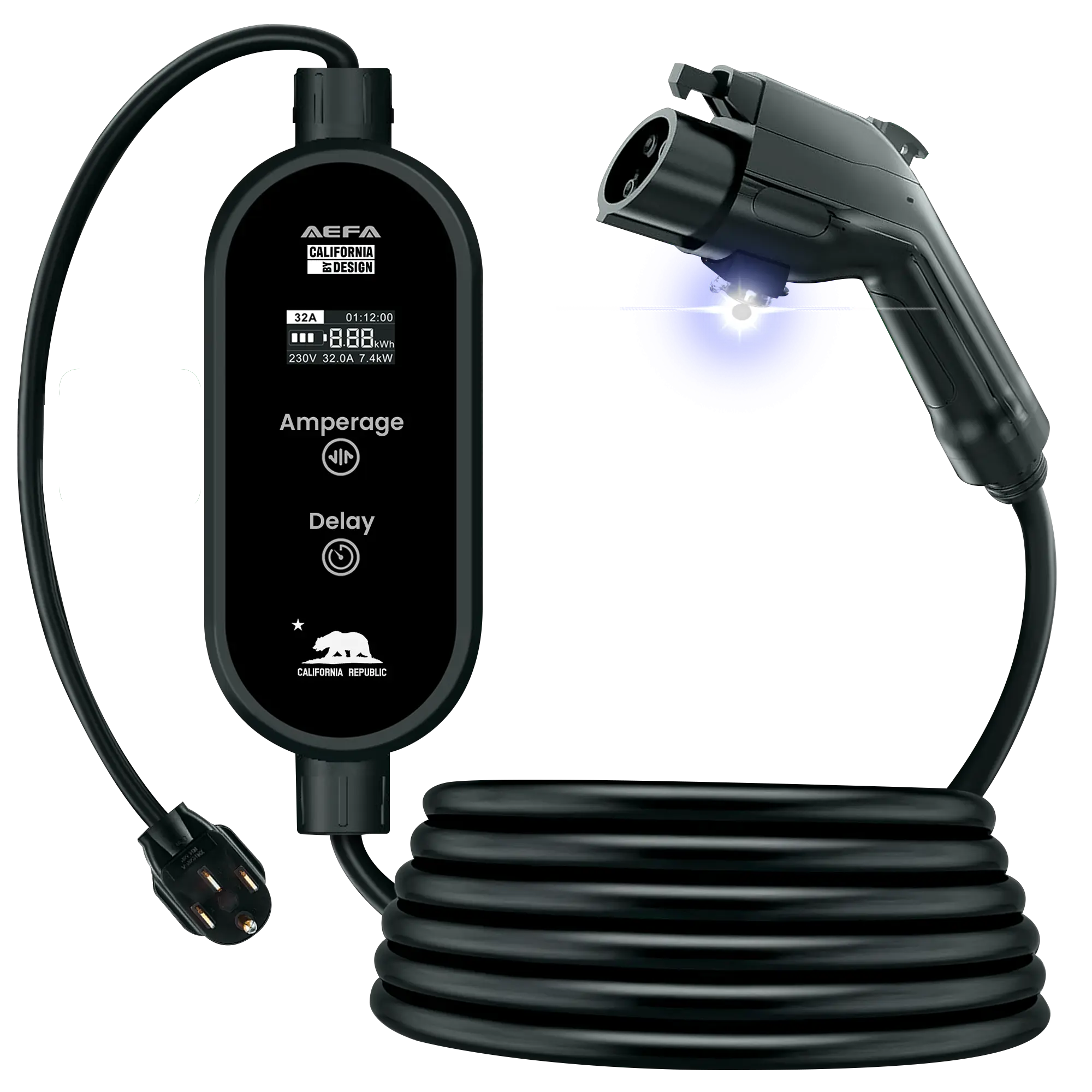

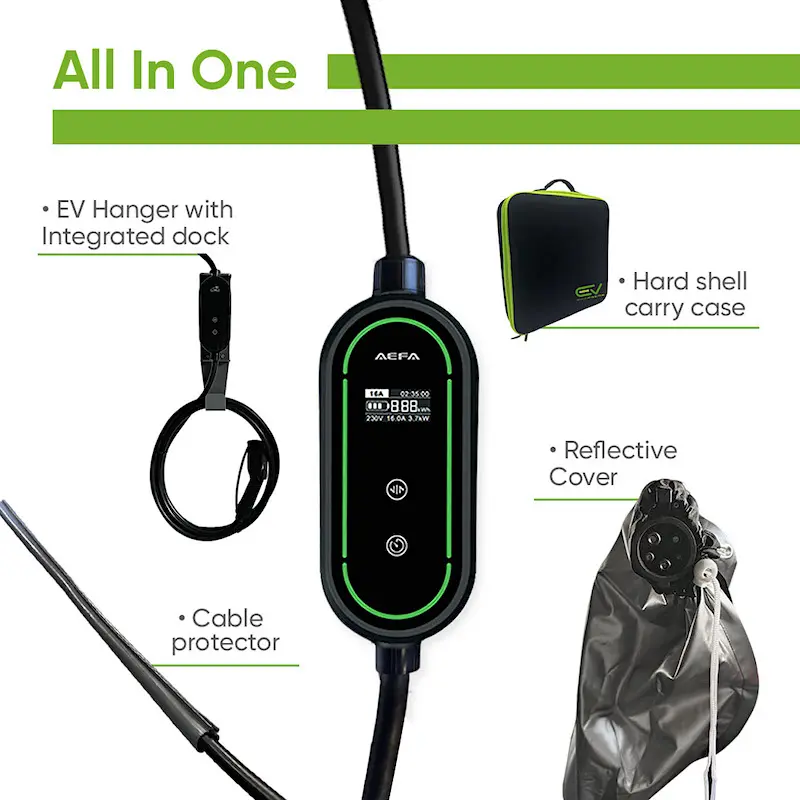
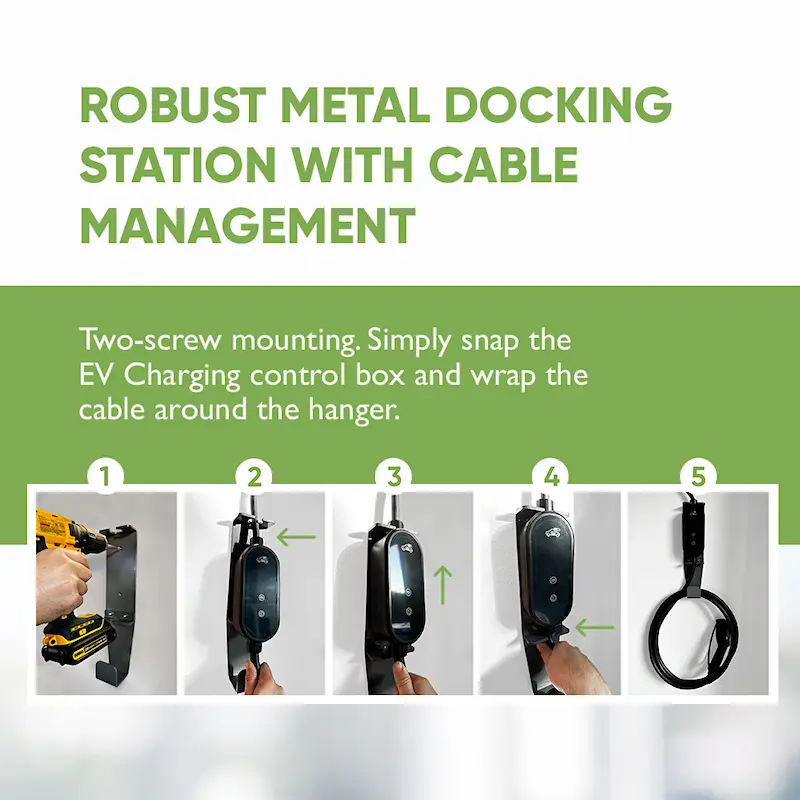
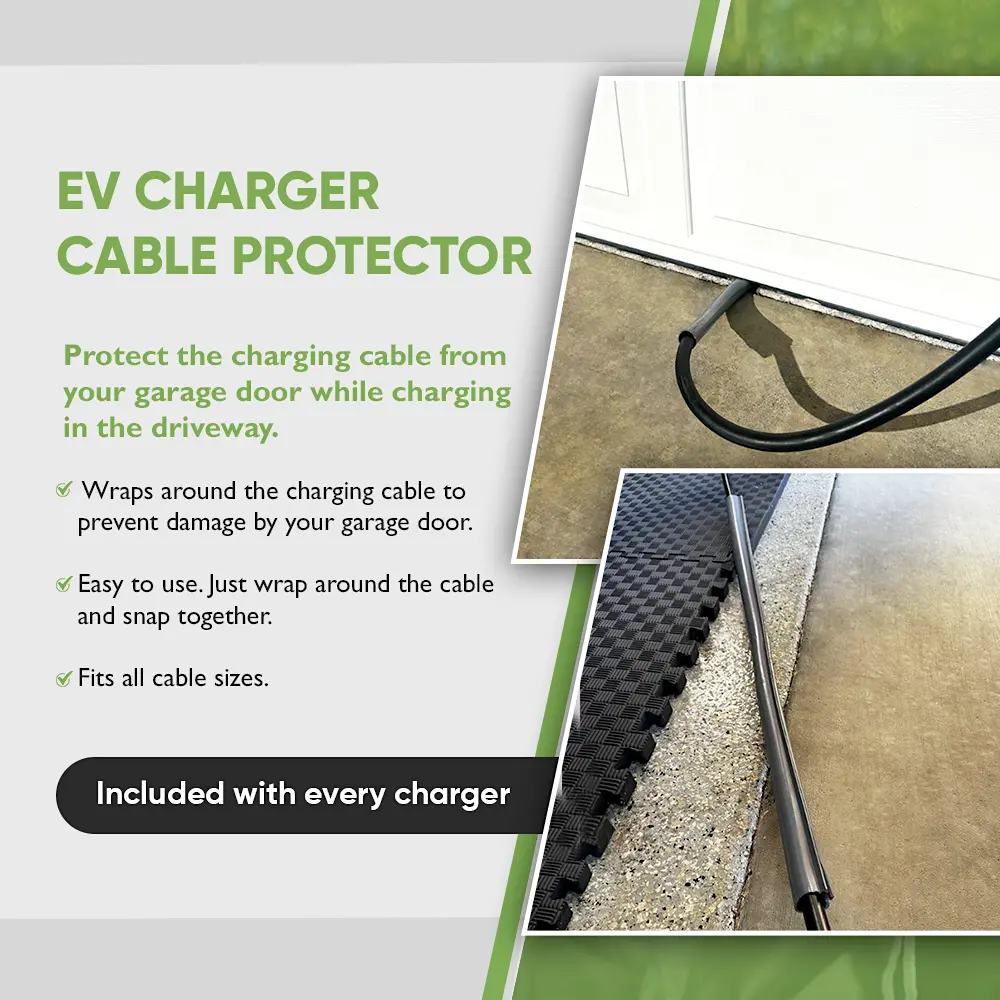
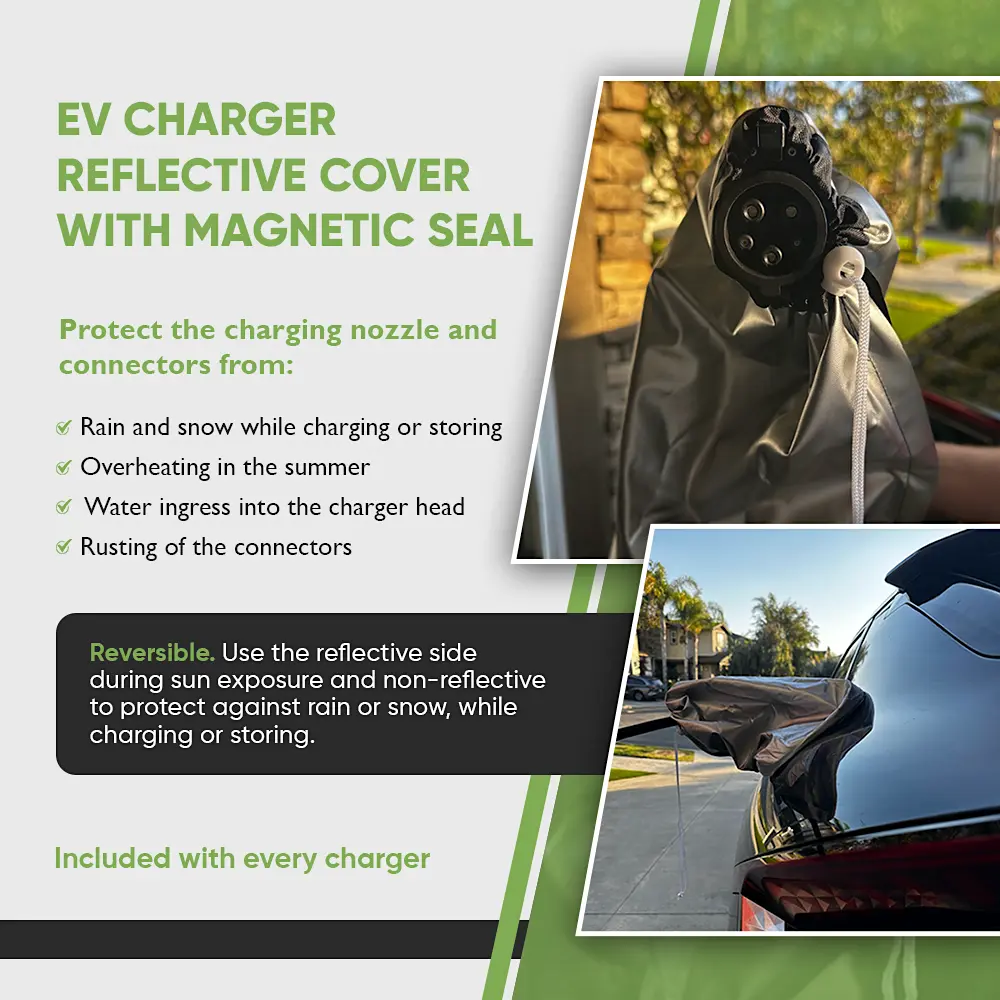
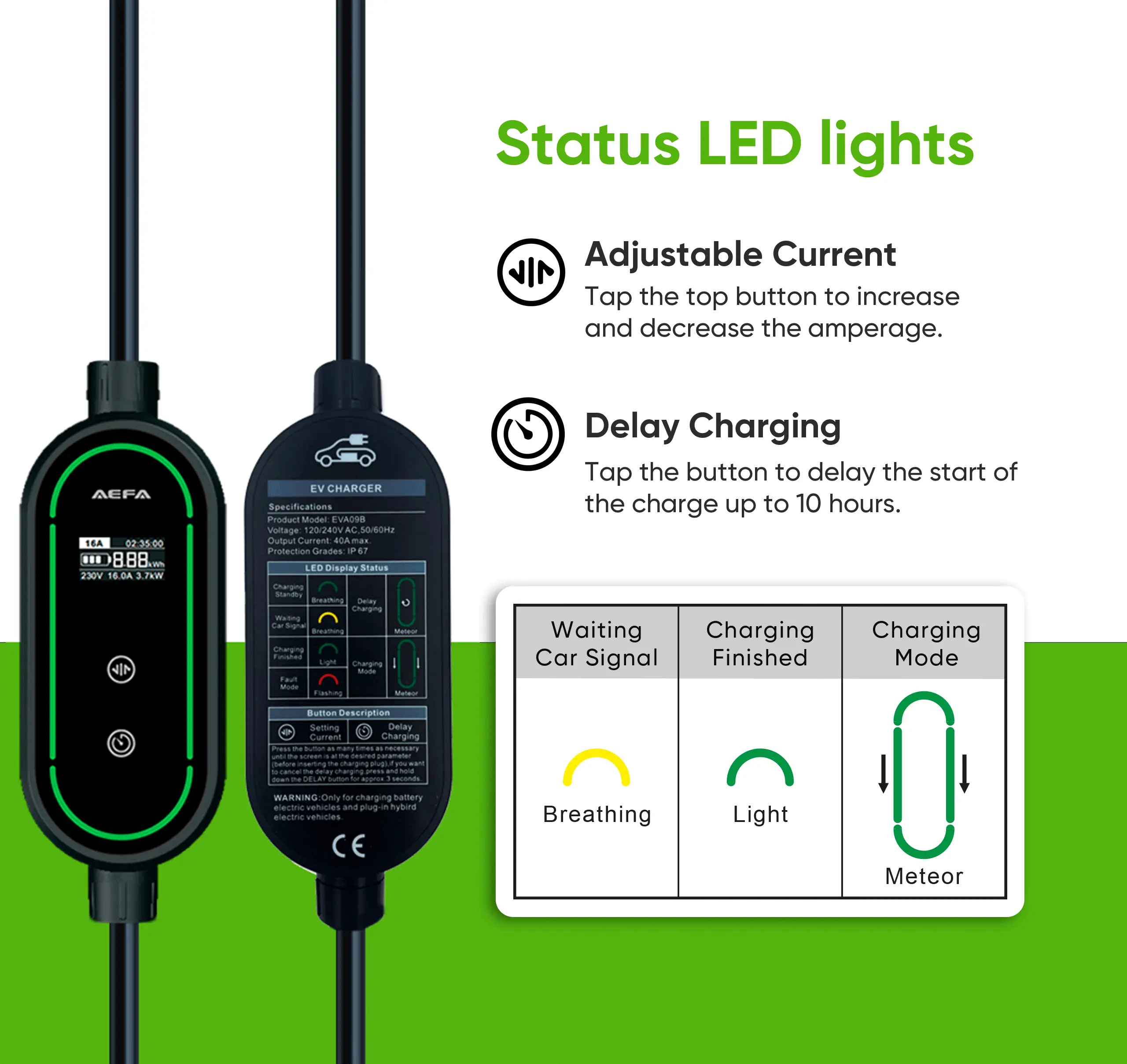
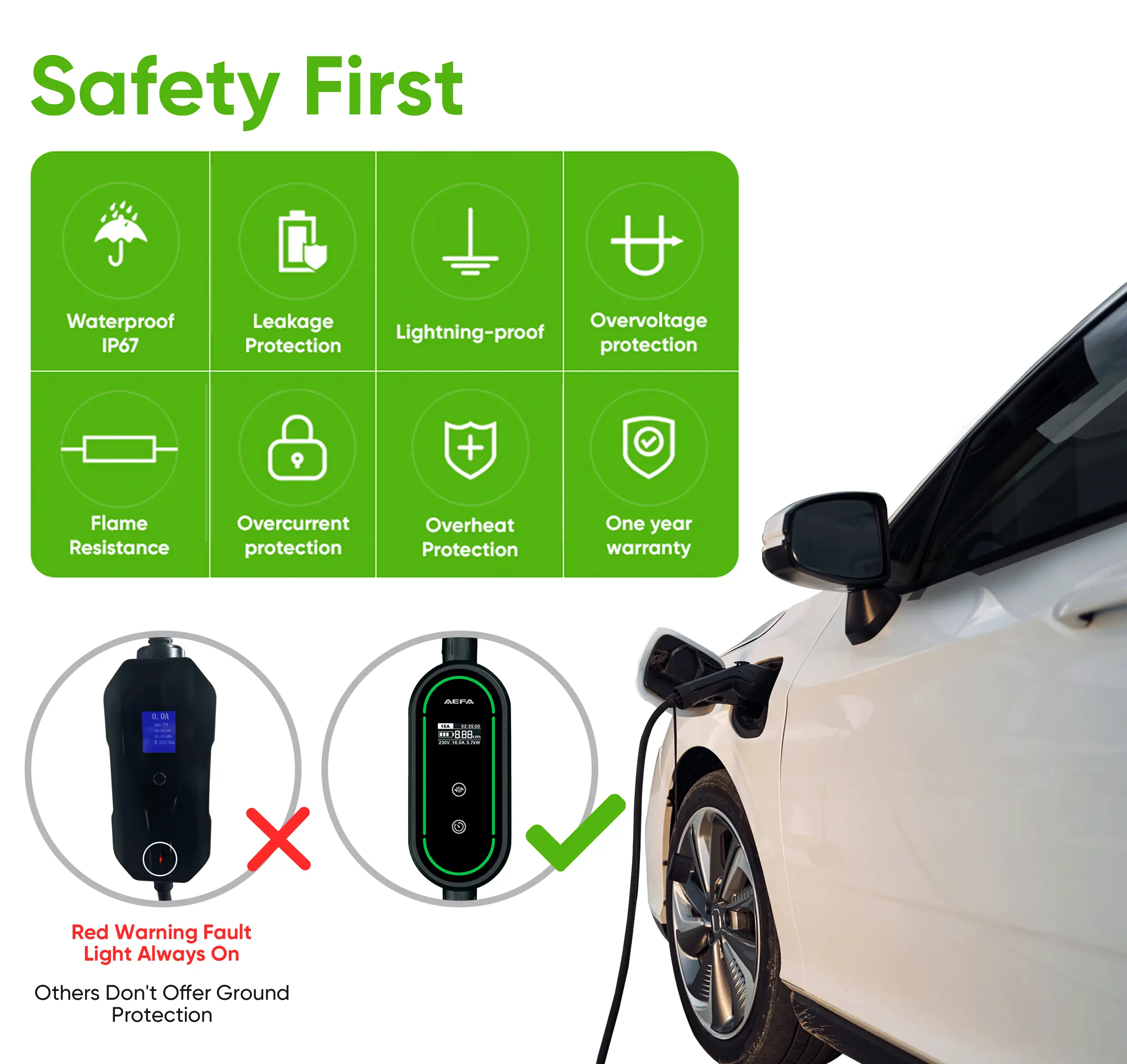
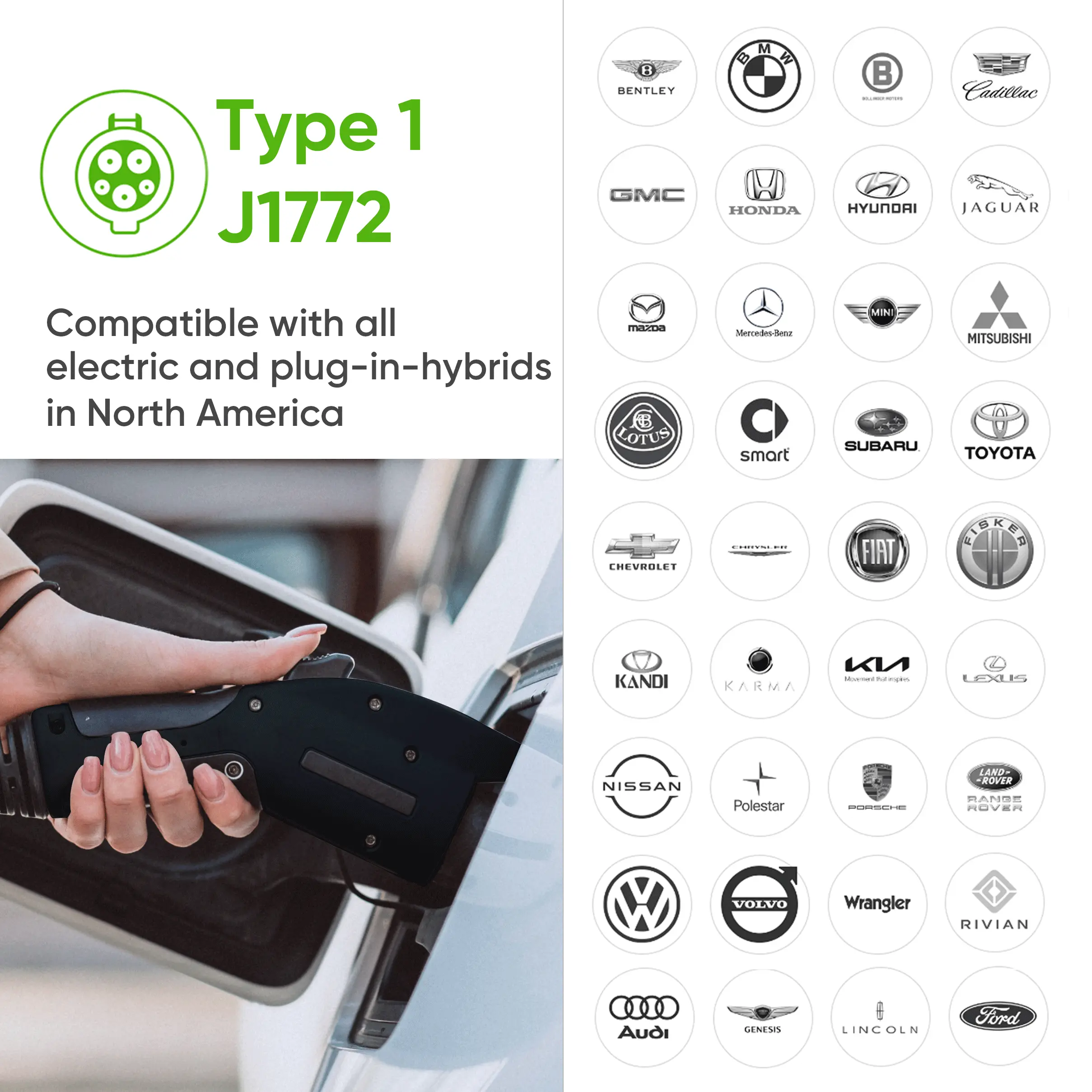
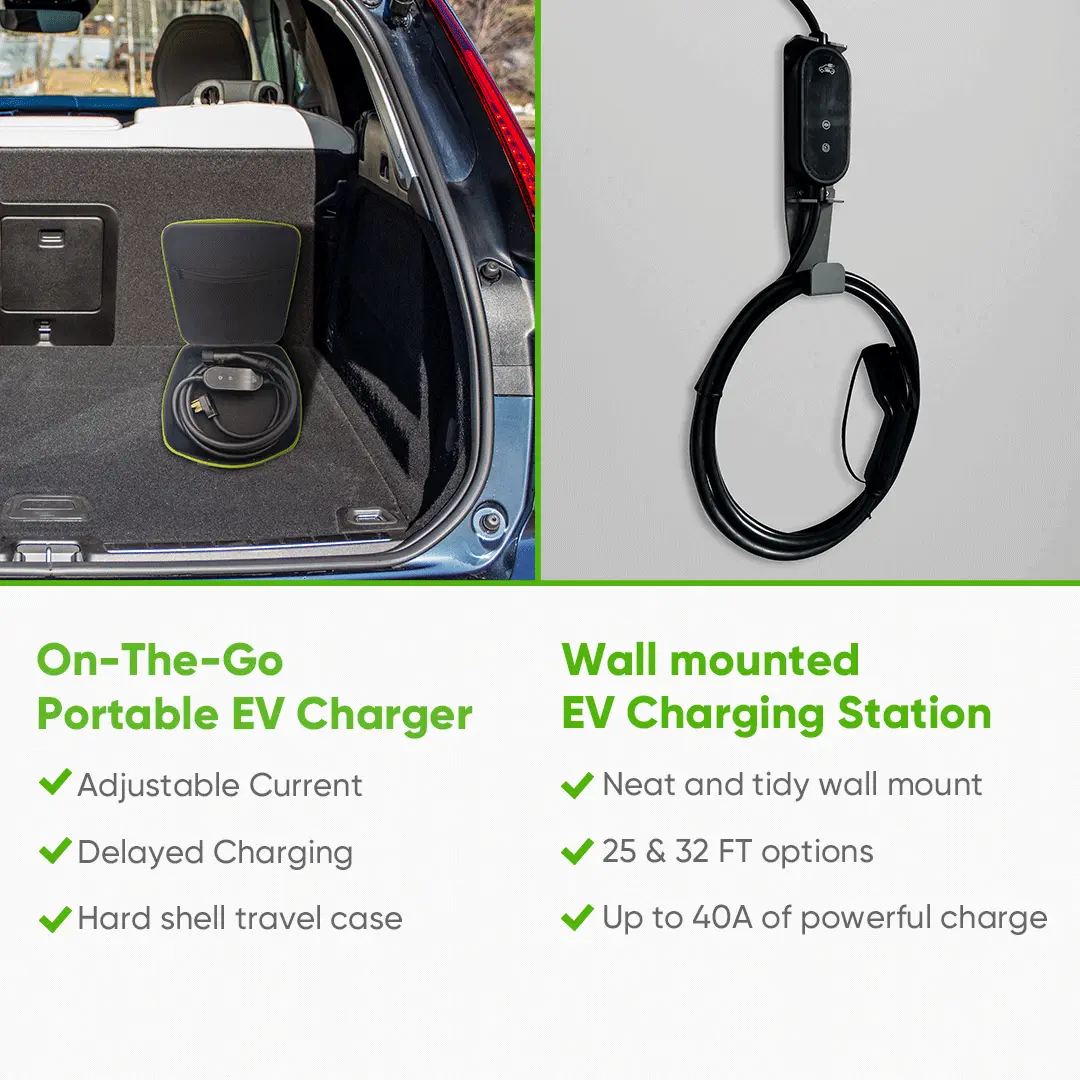
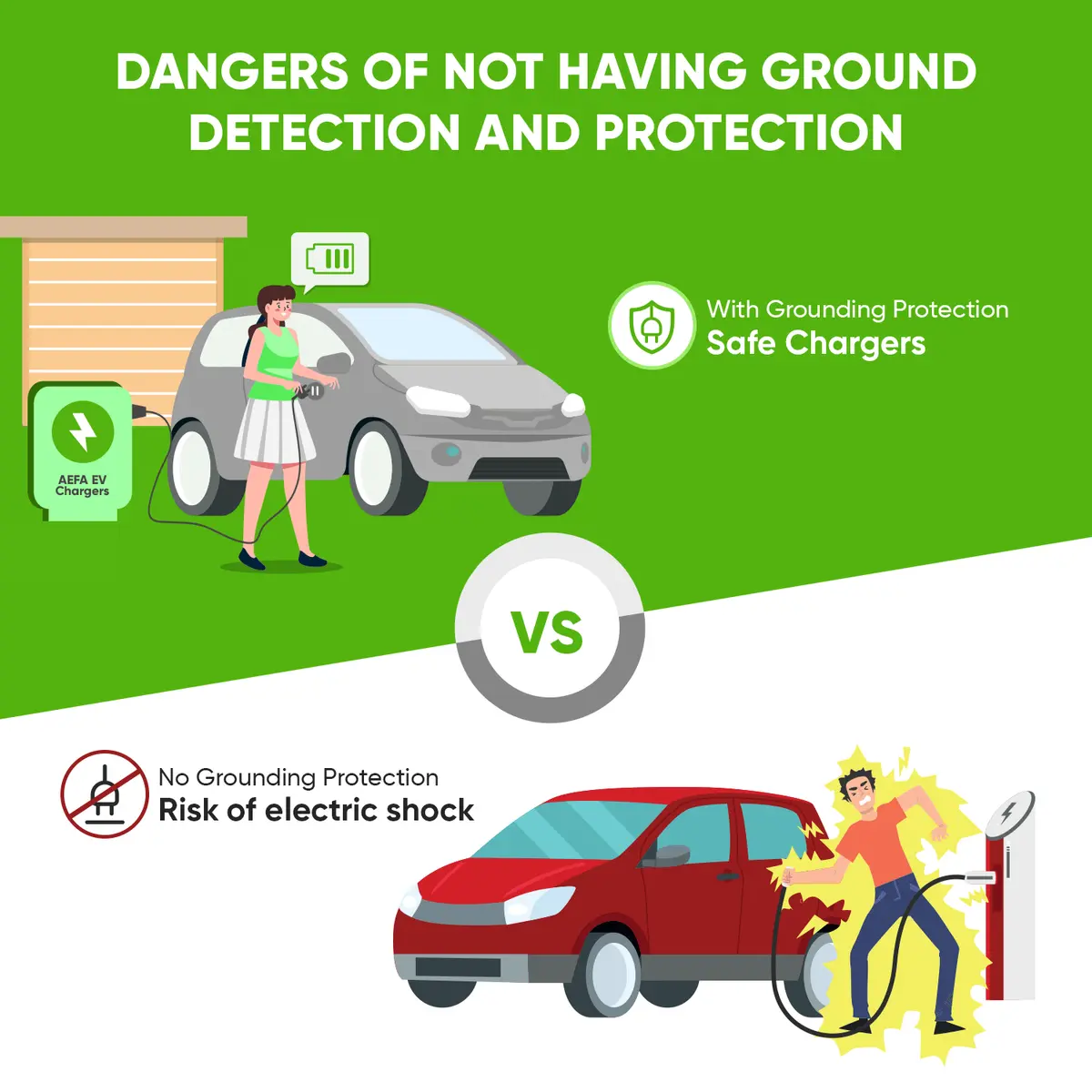
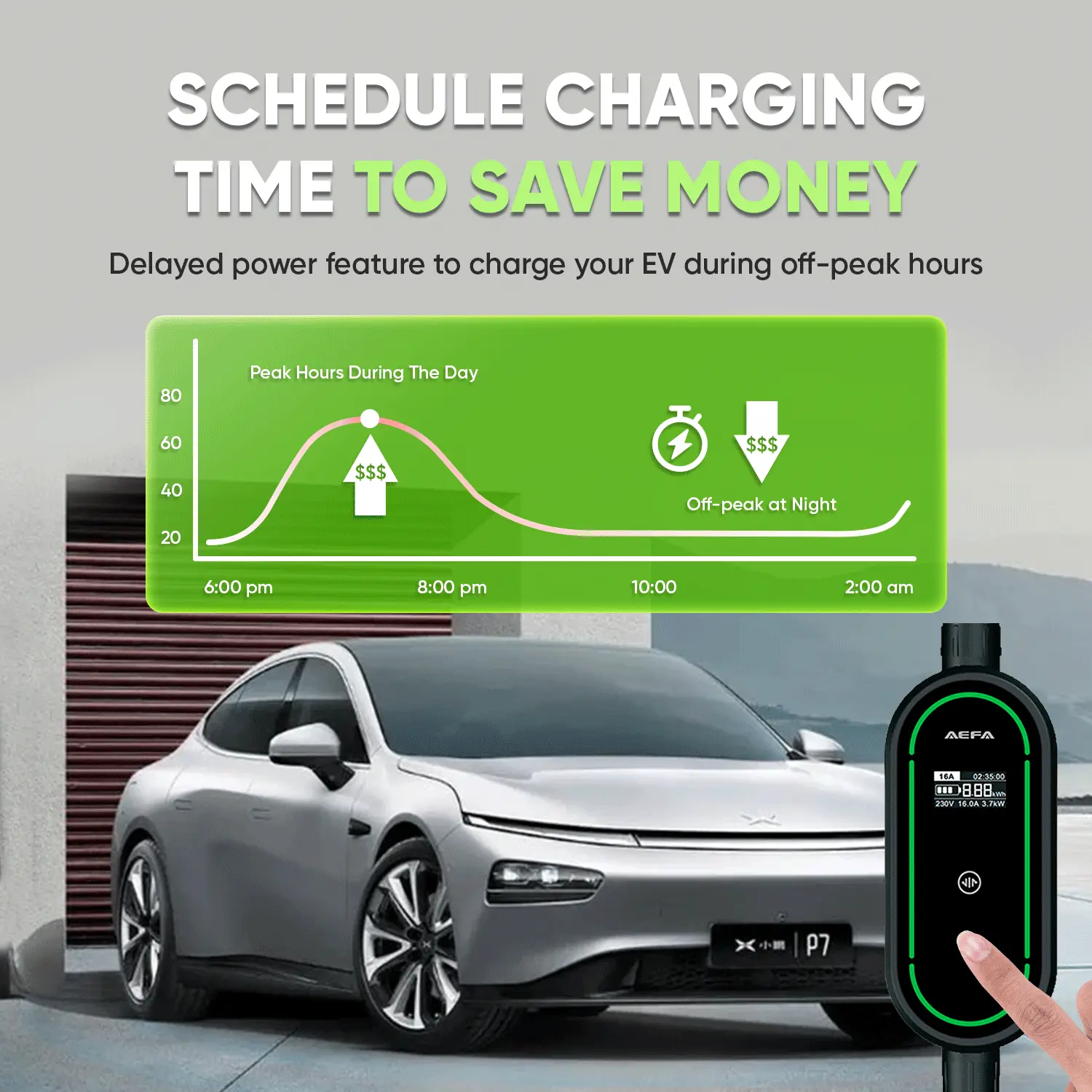
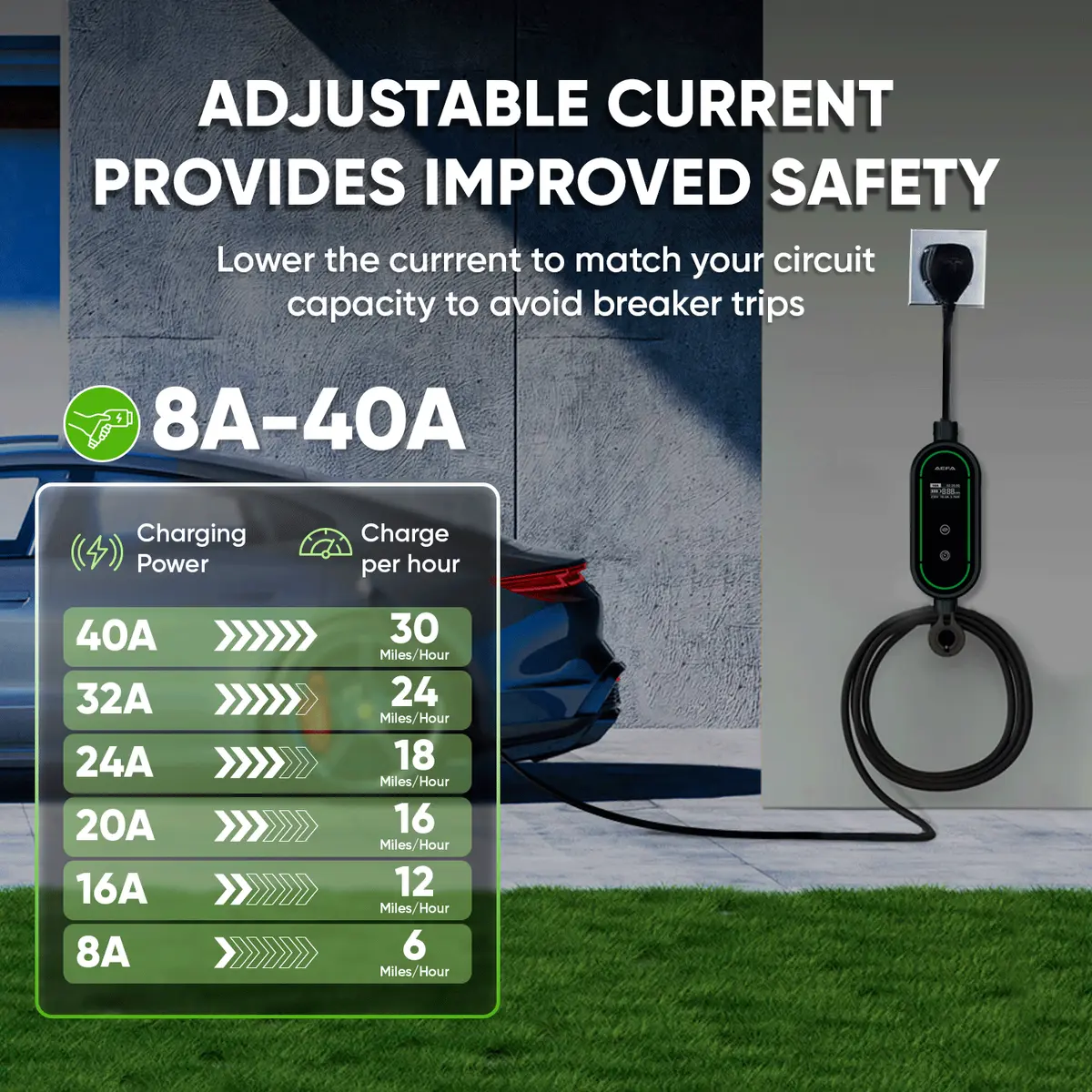
Starting at $120
This product is out of stock.
Order in the next hrs mins for delivery between 00 and 00!
| 3 Pin Plugs | NEMA 5-15 Socket (120V), NEMA 6-30, NEMA 6-20 (240V) |
| 4 pin Plugs
Rating Rated Currents |
NEMA 14-50, NEMA 6-50, NEMA 14-30, NEMA L14-40 (240V)
Indoor/Outdoor rated for installation anywhere 12, 16, 20, 24, 32 and 40 amp |
| Weight | 14 pounds |
| Connector Type | Type 1 (SAE J1772) lockable. Fits all cars including Tesla with Tesla supplied adapter |
| Control Box Dimensions | 2 inches deep x 3.5 inches wide x 8 inches long |
| Cable Length | Convenient 25 feet or 32 feet (total charging length from wall socket 26 feet and 34 feet) |
| Protection | IP67 (international standard EN 60529) |
| Assembly
Temperature |
None
22 degrees Fahrenheit to 140 degrees Fahrenheit |
| Warranty | 12 months |
| Input voltage | 208-240 Volts alternating current (AC), single phase |
| Approvals | CE, CB & TUV Approved |
| Material | Premium TPU with thin and lightweight cable |
| Compatibility | Suitable for all U.S. and Canadian EVs (SAE J1772 inlet) |
| Integrated DC Leakage Protection | Type B residual current detection |
| Surge Protection | Over/under voltage, overload protection, short circuit protection, leakage current protection, over
temperature protection, lightning protection, active ground detection |
| Ground Monitoring | Yes |
| Residual Current Detection | Alternating current 30 milliamps (mA), Direct Current 6 milliamps (mA)
*Requirements of GB 14048.2 – 2008, GB 16916.1-2014 and GB 22794-2008 |
| Features | LED indicator lights to manage charging errors |
The Nissan Leaf was launched in 2010 as the world’s first mass-produced battery electric automobile, which provided an affordable, fully electric, and zero-emission vehicle for seeking electric buyers. The second-generation Leaf was introduced in 2017 with improved ranges and battery sizes and packed several improvements, ensuring that the car’s battery will work well and last a long time. The first model introduced held a 39 kW/h, whereas the new Nissan Leaf EV holds a 59kW/h lithium-ion battery pack, which provides an improved 239-mile all-electric range on full charge. The Nissan Leaf EV can be charged by a J1772 Level 1 or Level 2 EV chargers at a rate of 6.6kW/h on a 240-volt outlet. The charging cable connects the Nissan Leaf to the power source, whether it’s a 120-volt outlet for Level 1 charging or a 240-volt outlet for Level 2 charging. We have produced the below guide to answer common questions about Nissan Leaf EV charging.
| Battery Size |
|---|
| 39-kW/h |
| 59-kW/h |
| DC commercial charging |
|---|
| Yes |
| Yes |
| Cost per Charge |
|---|
| ~ $4.00 |
| ~ $6.00 |
| Level 2 Charging |
|---|
| Yes |
| Yes |
| Electric Range |
|---|
| 168 miles |
| 239 miles |
The table below compares charge times from empty to full for Nissan Leaf EVs and shows the total charge time when completed via both Level 1 and Level 2 EV chargers. Charging times may vary based on power source, ambient temperature, battery temperature, condition, age, and use of vehicle accessories while charging.
| Plug Type |
|---|
| Level 1 - 5-15 (regular 3-pin) 120V |
| Level 2 - 14-30 (4-pin electric dryer type) 240V |
| Level 2- 14-50 (4-pin) 240V |
| Charge Rate |
|---|
| 1.5 KW/hour @ 12 amps |
| 5.5 KW/hour @ 24 amps |
| 9.6 KW/hour @ 40 amps |
| AEFA Charge Time |
|---|
| ~ 26 hours |
| ~ 7 hours |
| ~ 6 hours |
| Plug Type |
|---|
| Level 1 - 5-15 (regular 3-pin) 120V |
| Level 2 - 14-30 (4-pin electric dryer type) 240V |
| Level 2- 14-50 (4-pin) 240V |
| Charge Rate |
|---|
| 1.5 KW/hour @ 12 amps |
| 5.5 KW/hour @ 24 amps |
| 9.6 KW/hour @ 40 amps |
| AEFA Charge Time |
|---|
| ~ 39 hours |
| ~ 11 hours |
| ~ 9 hours |
You can monitor the charging status in real-time, including percent charge, plug-in status, time until complete charge, and the level of charge indicated by lights on the dashboard.
To improve the charge times of your Nissan Leaf, we recommend upgrading from a manufacturer’s Level 1 EV charger to a 240-Volt Level 2 EV Charger. It is important to avoid charger defects and ensure compatibility with your vehicle. The benefits of this include faster charging times at overnight cheaper electricity rates, enjoying the peace and acceleration of electric driving, and saving on expensive gas miles.
The Nissan Leaf EV can be charged by a Type 1 J1772 charger connector at home, work, or at any available Level 2 public charging stations. For fast charging, the Nissan Leaf uses the ChadeMo connector. For safe and efficient charging, it is important to use the correct EV Charger, such as a J1772 Level 2 charger. The Nissan Leaf’s alternating current (AC) is 6.6kW/hour, which is the maximum input the car’s onboard software will allow.
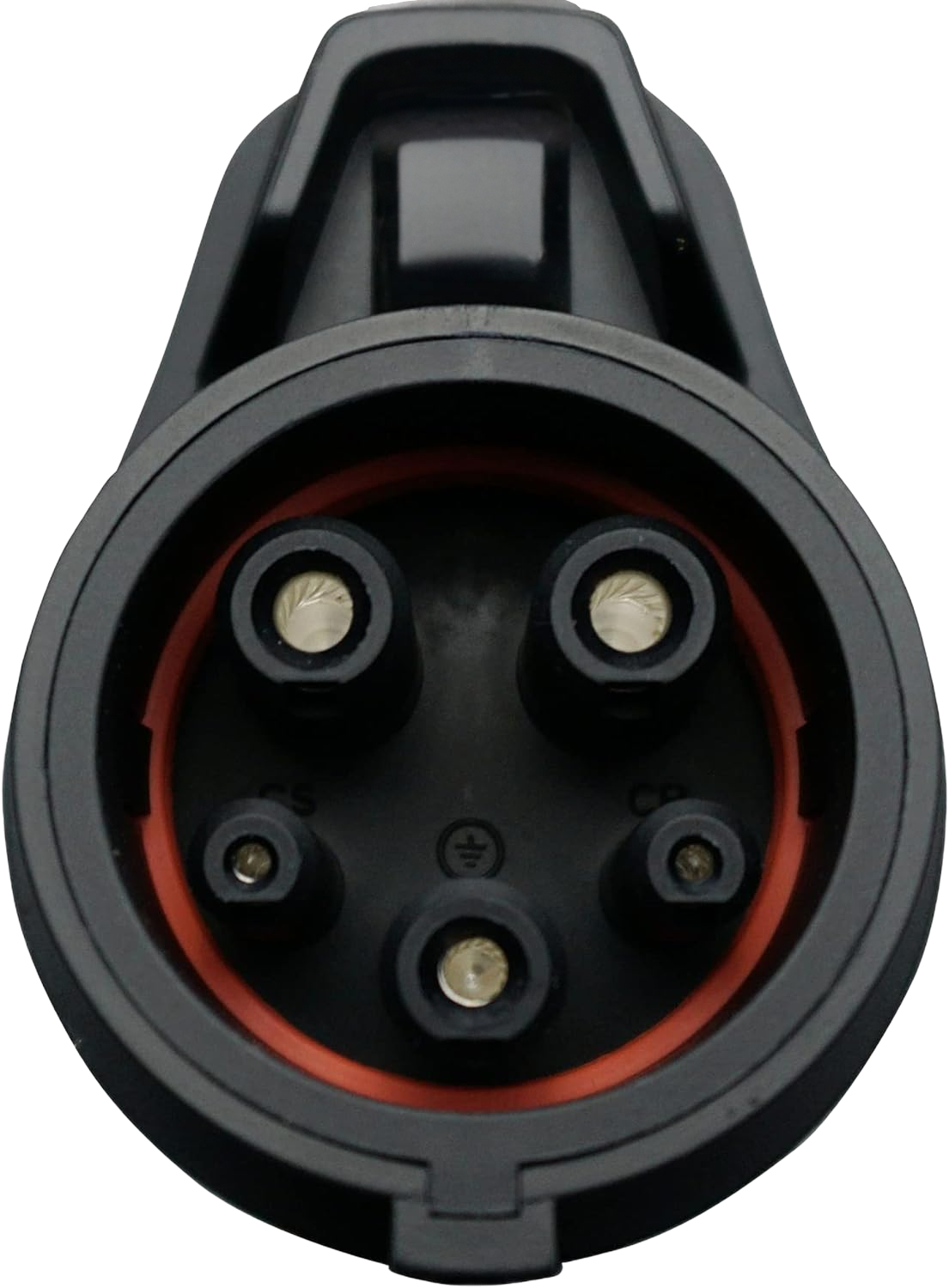
At EV Chargers, we offer charging options for all EV owners. We also provide installation services for home chargers to ensure proper setup and functionality. As Level 1 EV chargers are typically too slow to charge a full electric range, most owners prefer to upgrade to a Level 2 charger. Our most popular charger is a NEMA 14-50 40amp since it is a Level 2 Nissan Leaf fast charger with the quickest charging time. Another popular charger we offer is a 14-30 EV plug, as this charger is compatible with a 240-volt plug that many households already have for heavy-duty electrical appliances. We recommend you contact the charger manufacturer for compatibility and warranty information to avoid potential damages, defects, or incompatibility issues.
The majority of EV owners chose to charge their vehicle at home as a result of the added convenience offered by home charging and the preferential electricity rates when charging overnight. However, the Nissan Leaf can also be charged at work or any public charging stations. A number of camp groups and RV parks also offer EV charging facilities where a 14-50 receptacle is the most common. Charging electric vehicles at these locations provides flexibility and convenience for Nissan LEAF owners.
Refer to the owner’s manual for specific charging instructions and safety precautions, including details on charging your electric vehicle at home using Level 1 or Level 2 charging, as well as installation tips and safety guidelines.


The cost of charging your Nissan Leaf EV will vary depending on several factors, such as location (residential or commercial), State, time of day, and charging power. In some U.S. States, such as California, electricity is more expensive than the current average electricity rate of 20¢/kWh, which is used in the calculation below. It is important to consult the customer disclosure form for detailed cost information.
| Place | |
|---|---|
| Home (empty to full)* | Commercial chargers** |
| Avg. cost | |
|---|---|
| $5.85 | $15.20 |
| Cost/mile | |
|---|---|
| 0.15¢ | 0.39¢ |
| Place | |
|---|---|
| Home (empty to full)* | Commercial chargers** |
| Avg. cost | |
|---|---|
| $8.85 | $23.00 |
| Cost/mile | |
|---|---|
| 0.15¢ | 0.39¢ |
* Assumes average. U.S. tariff of 20 ¢/kWh. Home charging costs will vary state by state depending on electricity costs
** Assumes tariff of 50 ¢/kWh applicable to most commercial Level 2 network EV chargers
If you don’t find the answer you need, feel free to contact us.
Yes, you may charge your Nissan Leaf EV at Level 1 or Level 2 with the J1772 connector or at Superfast charging stations with the CHAdeMO fast-charging port; this will add about 80 percent of battery capacity (180 miles) in 45 minutes at a 100 kW fast charger. For at-home charging, you can use a portable charge cable compatible with 120-volt outlets, though it is a slower option compared to other at-home charging alternatives.
The Nissan Leaf fast charger is a Level 2, 32amp or 40amp, 240-Volt 14-50 or 6-50 EV charger.
The Nissan Leaf uses a Type 1 SAE J1772 charger connector for level 1 and level 2, but ChadeMo is used for fast charging. There are currently no NACS charger connector options for Nissan vehicles. View our full range of Nissan Chargers.
Generally not, using a Level 1 charger for your Nissan Leaf 39kW/h will take 26 hours to fully charge and 39 hours for a 59kW/h battery, which isn’t fast enough for most EV owners. A Level 2 charger will fully charge the 39kW/h battery in just over 5 hours and the 59kW/h will take 6 hours.
The most popular EV charging option we offer to Nissan Leaf owners is a Level 2 40-amp 14-50 charger as this provides the fastest available EV charging option.
The main benefits of Level 2 EV charging are speed, cost, and convenience. A Level 2 charger significantly reduces charging times and can be fully completed at cheaper overnight electricity rates from the comfort of your own home.
The maximum alternating current (AC) charge rate for all Nissan Leafs is 6.6kW/h, which is the maximum input for this EV. Future versions of this EV may have improved power acceptance settings.
Thanks for your interest! We’ll be notifying you once the product gets back in stock.